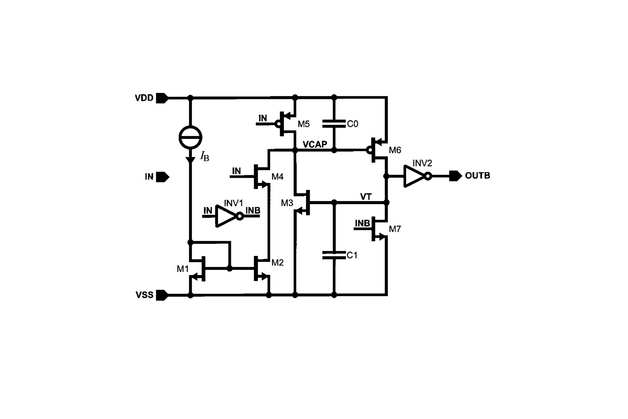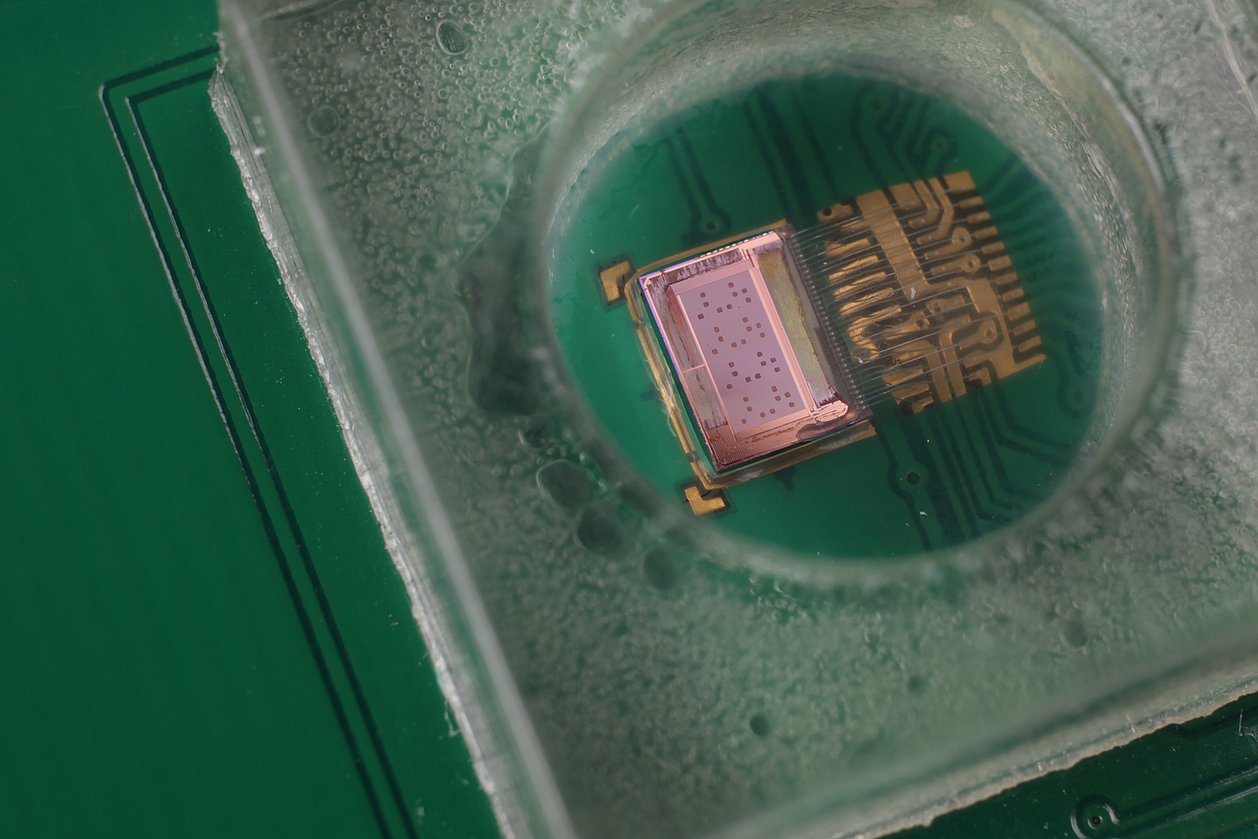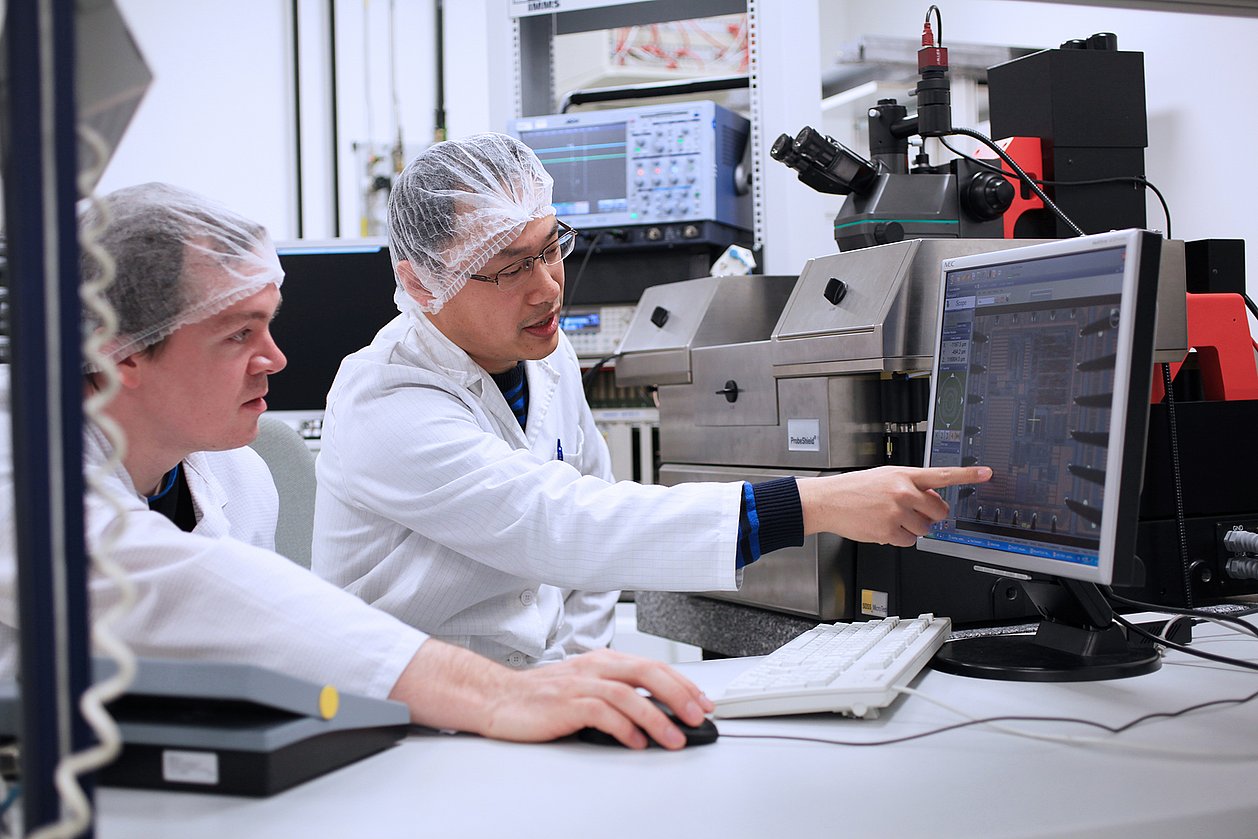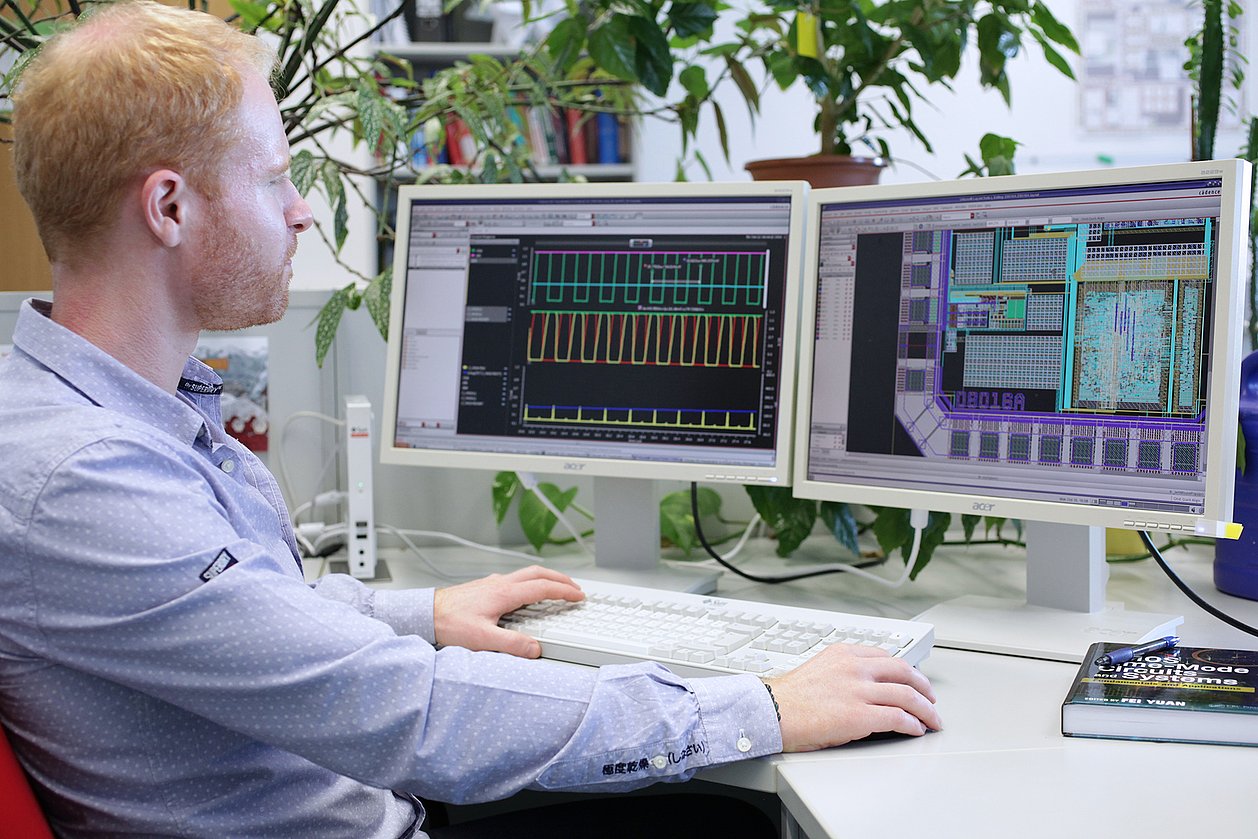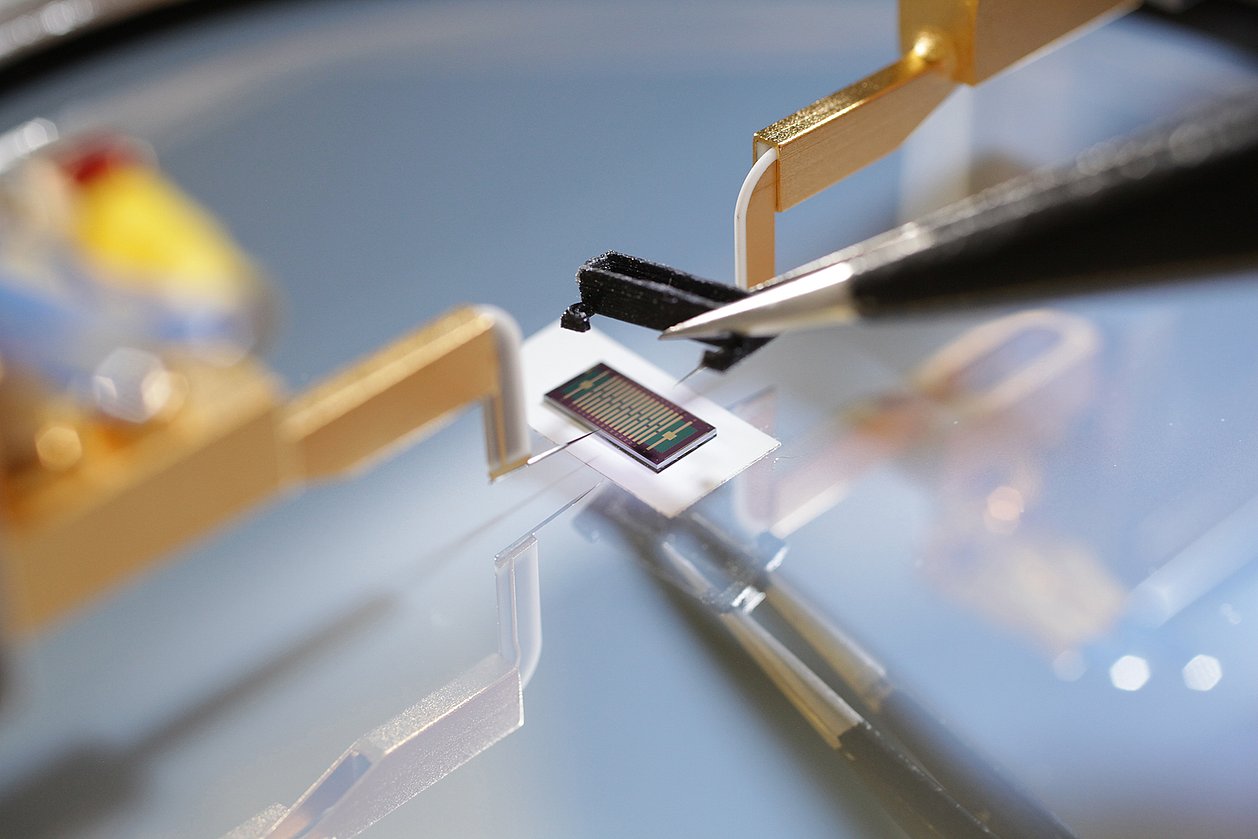Benjamin Saft, M. Sc.
„The working environment at IMMS really motivates me to work at my creative optimum. The flexible hours have helped me to make the best use of the times when I can be at my most productive. Researching with an international team is exciting and stimulating, while the discussions with colleagues from such a wide variety of subject areas lead to solutions which are innovative and, at the same time, sound. IMMS, for me, is not only work; I have found real friends among my colleagues.“
„Having got to hear of IMMS in one of Professor Sommer’s lectures, I did an internship there in 2010, working on industrial electronics and measurement technology. Then I wrote my BSc dissertation at Ilmenau University of Technology in Professor Sommer’s department, that of electronic circuits and systems, on computeraided optimisation of an operational amplifier. The subject of my dissertation had arisen in the SyEnA joint project (on synthesis-driven design of analogue circuits), in which IMMS was one of the partners. Afterwards I worked as a student research assistant at the TU and extended my knowledge on the subject.
Professor Sommer supervised my dissertation for the MSc, produced at Melexis, which I was successful in defending, and now I have been a researcher at IMMS since May 2012. My work is on the ‘GreenSense’ project. Pure research in this project is carried out with a view to future application. It therefore provides me with much opportunity for self-development, both professionally and methodologically. I am not limited to applying my knowledge of analogue circuitry and to making a contribution to the design of complex microchips. I have been given the opportunity to study for a PhD on the subject of ‘low-power electronics for self-powered smart sensor systems’ which will take the issues of the project as its basis.
The working environment at IMMS really motivates me to work at my creative optimum. The flexible hours have helped me to make the best use of the times when I can be at my most productive. Researching with an international team is exciting and stimulating, while the discussions with colleagues from such a wide variety of subject areas lead to solutions which are innovative and, at the same time, sound. IMMS, for me, is not only work; I have found real friends among my colleagues and feel that joining the Institute has been more than positive for me, deeply enriching both my private and my professional life.”
Related content

Project
Ovutinin
For an innovative rapid test for fertility diagnostics, IMMS is developing an image sensor for time-resolved fluorescence measurement.
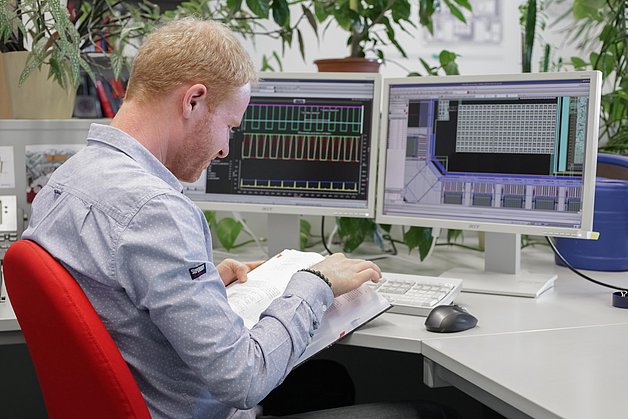
Project
MEDIKIT
IMMS has developed a chip for mobile diagnostic systems for the early detection of diseases using time-resolved fluorescence measurements.
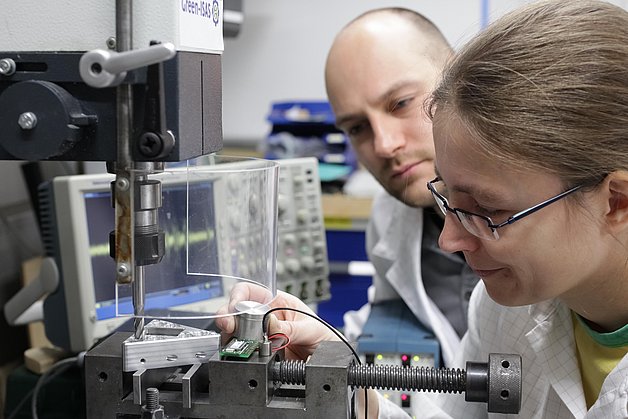
Project
Green-ISAS
Research on novel methods and technologies to enhance sensor-actuator systems to autonomous Industry 4.0 components
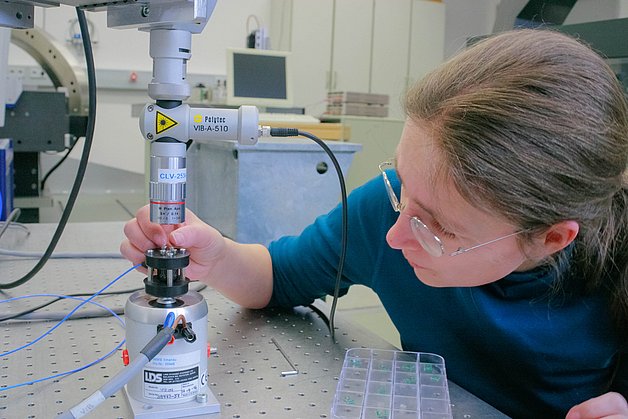
Project
GreenSense
For bio-analysis IMMS developed energy-efficient multi-parametric RFID microsensors and energy harvesting modules for operating autonomous sensors.
CMOS-basierte Sensorsysteme für die In-vitro-Diagnostik
Alexander Hofmann1. Benjamin Saft1.elmug4future, Technologiekonferenz, 21. - 22. Oktober 2025, Jena, Thüringen
1IMMS Institut für Mikroelektronik- und Mechatronik-Systeme gemeinnützige GmbH, Ehrenbergstraße 27, 98693 Ilmenau, Germany.Point-of-care solution for rapid monitoring of cytokine release syndrome by chemiluminescence cytokine detection on sensitive Single Photon Avalanche Diodes (SPAD) sensors
A. Lopes1. P. Scholz1. S. Allelein1. A. Kölsch1. E. Schäfer2. M. Wiener2. B. Saft2. N. Isserstedt-John3. D. Kuhlmeier1.18. Research Festival for Life Sciences, 30. Januar 2025, Leipzig
1Fraunhofer-Institut für Zelltherapie und Immunologie IZI, Leipzig. 2IMMS Institut für Mikroelektronik- und Mechatronik-Systeme gemeinnützige GmbH, Ehrenbergstraße 27, 98693 Ilmenau, Germany. 3microfluidic ChipShop, Jena.Enhancing Chemiluminescence-Detection with Dark-Count Rate Optimization Strategies for SPADs in Conventional CMOS Technologies
Benjamin Saft1. Alexander Zimmer2. Maximilian Wiener1. Mirjam Skadell2. Eric Schäfer1.ISSW 2024, The International SPAD Sensor Workshop & the SPAD SENSOR SCHOOL, Trento, Italy, June 3 - 6, 2024
1IMMS Institut für Mikroelektronik- und Mechatronik-Systeme gemeinnützige GmbH, Ehrenbergstraße 27, 98693 Ilmenau, Germany. 2X-FAB Semiconductor Foundries GmbH, Erfurt, Germany.Integration of Chemiluminescence-based SPARCL Assay on Microfluidic Platform with SPAD-based CMOS Line Sensor IC for Rapid Cytokine Detection in CRS
Benjamin Saft1. Biljana Gjurova. Pia Scholz. Alexander Zimmer. Mirjam Skadell. Eric Schäfer1. Susann Allelein.POCT Meeting 2024, 17. - 18. April 2024, Leipzig
1IMMS Institut für Mikroelektronik- und Mechatronik-Systeme gemeinnützige GmbH, Ehrenbergstraße 27, 98693 Ilmenau, Germany.
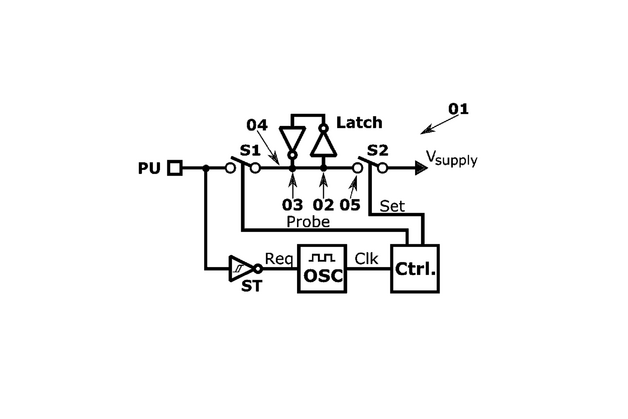
Patent
DE 10 2016 119 927
Circuit arrangement for providing the charging energy for a level change on a signal bus, calibration method and signal transmission system
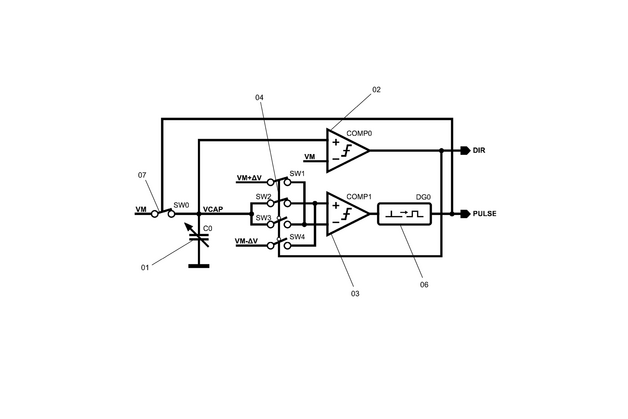
Patent
DE 10 2013 113 378
Method and electronic circuit for determining the time instant of an extremum of a time-varying capacitance


